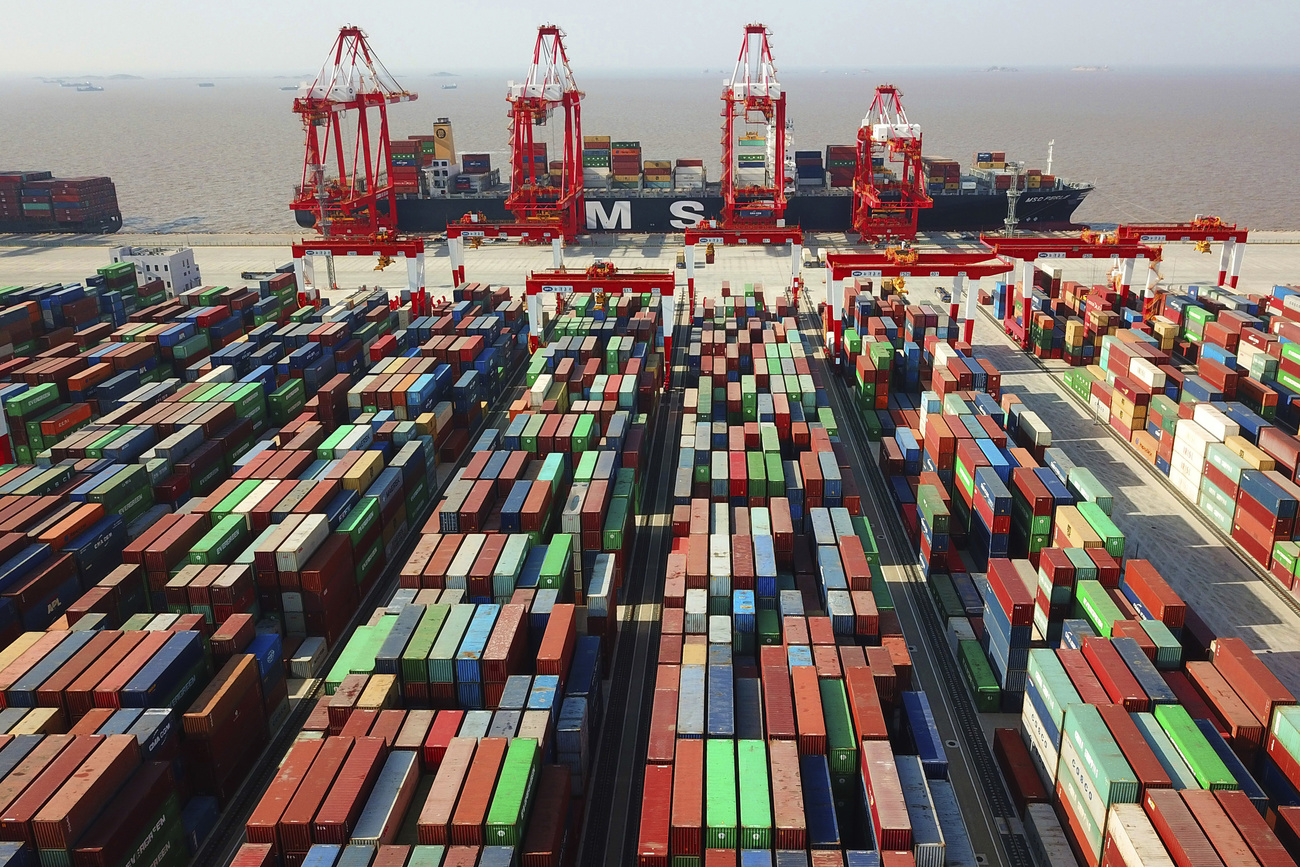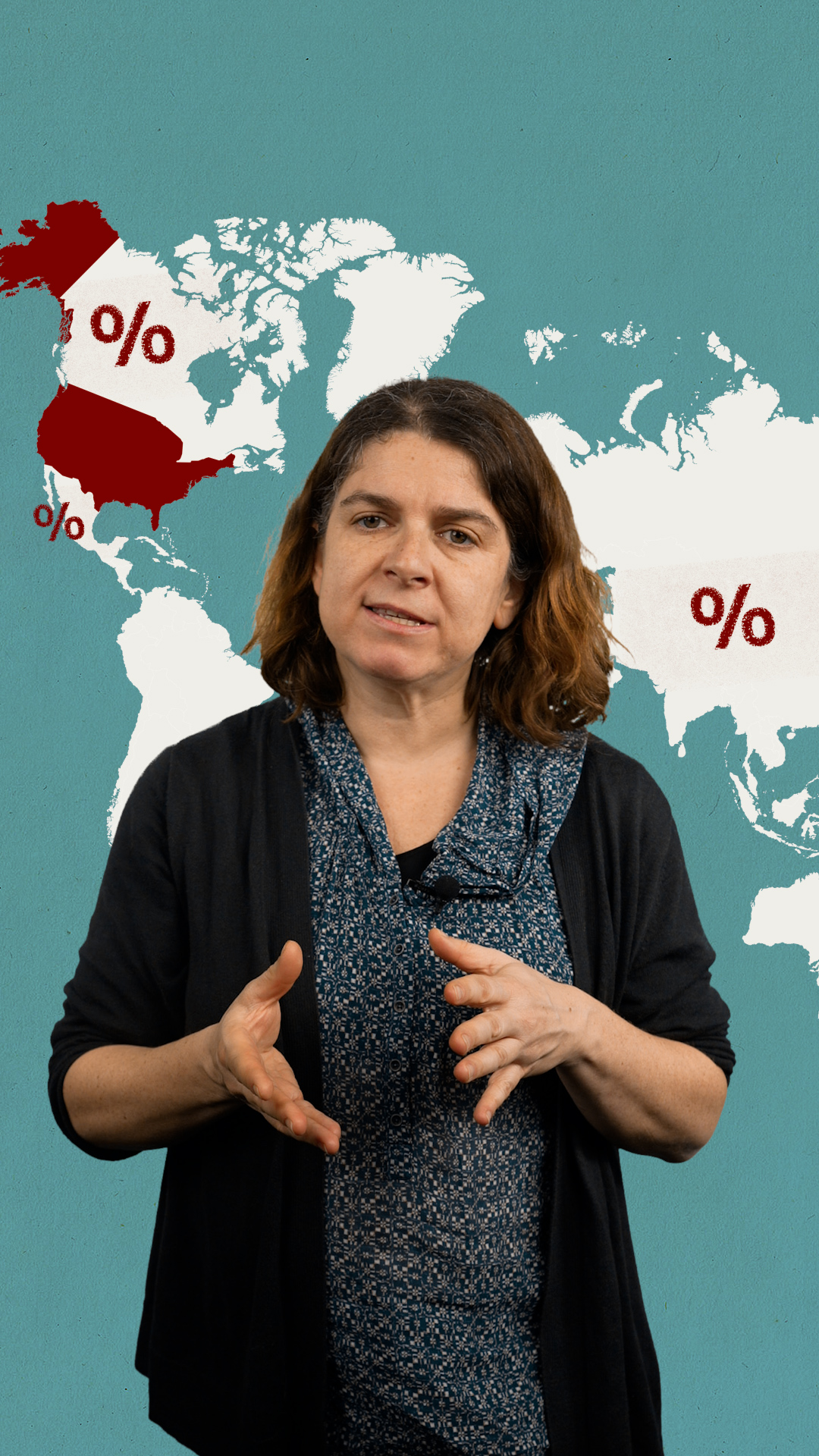US and China to launch formal trade talks

Washington and Beijing will this week hold their first trade talks since US President Donald Trump launched a trade war against China that has rattled financial markets and triggered concerns about supply chains.
Treasury secretary Scott Bessent and US trade representative Jamieson Greer will meet their Chinese counterparts in Geneva this week. China said vice-premier He Lifeng, its top economy official, would lead its delegation.
The meeting will be the first high-level interaction between the two sides since vice-president Han Zheng attended Trump’s inauguration in January.

Bessent told Fox News on Tuesday evening that the two teams would meet on Saturday and Sunday. He said they had a “shared interest” in talking because the high level of tariffs “isn’t sustainable”. But he cautioned that the discussions would be an effort to lower tensions rather than negotiations about a broader trade deal.
‘De-escalate before we can move forward’
“My sense is that this will be about de-escalation, not about the big trade deal,” Bessent said during the interview. “We’ve got to de-escalate before we can move forward.”
The meeting marks the first real effort to tackle the trade war that has seen Washington impose a 145 per cent tariff on imports from China and Beijing slap a retaliatory tariff of 125 per cent on American goods.
It is the first positive sign for businesses that have been concerned about the record level of tariffs both sides have placed on each other. It also comes after Trump on multiple occasions said the countries were holding negotiations, claims which have been contradicted by his own team.

More
Trump tariff shock: how Switzerland is positioning itself
“We all knew that the US and China would need to re-engage, but today’s announcement of a face-to-face meeting in Geneva at such a senior level is greater than expected,” said Wendy Cutler, a former US trade official who now serves as vice-president at the Asia Society Policy Institute.
Cutler cautioned that it was important to “keep expectations in check”, saying that it was “a lot easier to impose tariffs against each other than work together on a joint plan to re-engage and stabilise relations”.
Final deal ‘could take months’
Chinese analysts also cautioned that a final deal could take months and ideally would need to be sealed by a meeting of Trump and Chinese President Xi Jinping. “This week’s talks will just be the first step in a long march, a 1,000-miles long march,” said Wang Chong, a senior fellow at Charhar Institute.
Washington and Beijing had been mired in a stand-off. Trump has wanted to talk directly to Xi, but China had made clear that it would not hold a leader-level call to start negotiations.

More
What is a tariff? A quick guide
Beijing had earlier said the US should cut tariffs as a precondition for negotiations but appeared to soften its position last week when state media said there would be “no harm” in holding talks with Washington.
Asked on Fox News which side had requested the meeting, Bessent said: “There isn’t a first call, there are a lot of contact points over time.”
The Chinese commerce ministry said Beijing decided to hold talks after US officials recently hinted on several occasions about possible tariff relief and sent messages about their desire to have negotiations.
“Based on thorough consideration of global expectations, China’s own interests, and calls from US businesses and consumers, China has decided to agree to engage with the US,” the ministry said in a statement.
It also warned the US not to “use talks as a cover for coercion and blackmail”. Noting that other countries were already negotiating with the Trump administration, the ministry added: “It must be emphasised that appeasement does not bring peace, and compromise does not earn respect.”
Can Trump ‘be trusted’?
The Charhar Institute’s Wang said the first step would be to try to de-escalate the tariffs so both sides could negotiate in good faith. One possibility is a commitment from China to limit the sale of fentanyl precursors, although in practice this was difficult given that Beijing could not control the whole supply chain of the chemicals.
“The problem is whether President Trump can be trusted,” said Wang. “It seems he can change his ideas about something maybe two days, two months, or one quarter later — who knows?”
Last month, Trump triggered a sell-off in global stock markets after imposing “reciprocal” tariffs of up to 50 per cent on almost every US trading partner. He then lowered the levies to a 10 per cent baseline for 90 days.
The Trump administration has also indicated it is preparing to announce more tariffs on several sectors. In recent weeks, it has launched national security probes that could lead to levies on chips and consumer electronics, lumber, copper, pharmaceuticals and critical minerals.
Additional reporting by Joe Leahy in Beijing
Copyright The Financial Times Limited 2025

More
US tariffs pressure Swiss pharma powerhouse

In compliance with the JTI standards
More: SWI swissinfo.ch certified by the Journalism Trust Initiative








You can find an overview of ongoing debates with our journalists here . Please join us!
If you want to start a conversation about a topic raised in this article or want to report factual errors, email us at english@swissinfo.ch.